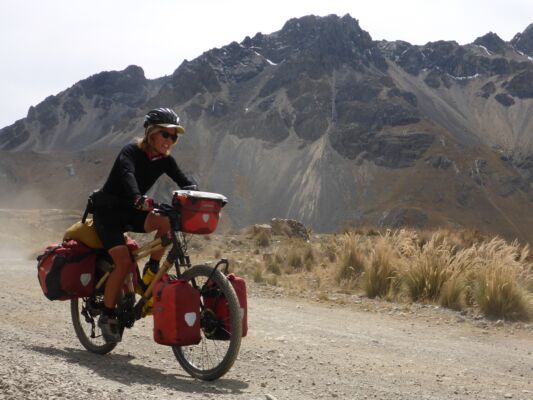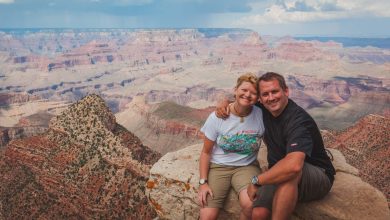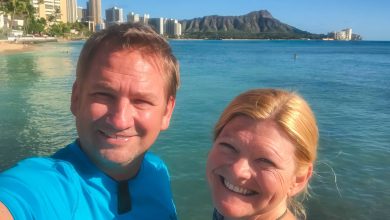
Up today: a guest blog from Kate Rawles asking ‘Can Adventure Change the World?’
There’s a North American writer and environmentalist who said one of those simple but incredibly powerful things. Bill Plotkin wrote that, if you can find the place where something you love doing intersects with something the world actually needs, that sweet-spot will be not only where you are happiest, but also your most effective. These words literally changed my life. I was a university lecturer when I read them, teaching good stuff to super lovely students – environmental ethics, sustainability, a bit of sea kayaking – but in a system that had become ever more regimented, bureaucratic, admin-heavy and time-demanding. It was no longer in my sweet-spot. Plotkin inspired me to figure out how to put riding my bike in mountains there instead (preferably hot sunny ones) something I’ve always loved doing, and have done a lot of over the years, despite my marked lack of athletic prowess at school. How could I do more, but in ways that would be both fabulous personal adventures, AND give something back?
Adventure Plus
Over time, that evolved into ‘Adventure Plus’: using adventurous journeys to help raise awareness and inspire action on our most urgent environmental challenges. I’ve been lucky enough to have had a crack at three. The Carbon Cycle was a ride in the Rockies from Texas to Alaska, exploring climate change in two of the most oil-intensive, oil-dependent countries on earth. Some years later, with a temporary switch of sustainable travel mode, l was invited to be mission leader for ‘Gyre to Gaia’, a sailing voyage with Pangaea Exploration. We had an eclectic mix of scientists and artists on board, all investigating ocean plastic pollution and, especially, whether microplastics are being ingested by zooplankton at the very base of the vital ocean food web. (They are.) Most recently, The Life Cycle was an 8288 mile, largely solo ride the length of the Andes on a bamboo bike I built myself. En route I explored biodiversity: what it is, why it matters, and why losing it at the current catastrophic rate amounts to a threat every bit as dangerous as climate change, despite that it’s still getting much less attention. I used all the journeys as the basis for slide shows and, in the case of The Carbon and Life Cycles, books. I’m still out there giving talks about that last one.
So that’s the first part of my answer to the question of how adventure might help change the world. People love having adventures, but they also love hearing about them – embedding an environmental message and call to action in an adventure story can work well as a communication hook or Trojan Horse, bringing these urgent messages to folk who might not read or listen to a ‘straight’ environmental lecture. And to communities – like the outdoor adventure ones – who have huge though not always fully realised potential for action.
But it’s the rest of my answer that is probably both the most significant, and the hardest to articulate.
The gift of perspective
‘Adventure’ is of course a relative term (my adventure is Ran Fiennes’ equivalent of a beach holiday) and adventures come in multiple shapes and sizes. But I think there’s always an element of stepping beyond the familiar and the routine; nudging up against comfort-zone boundaries; uncertainty; possibly risk; exploration (internal and external) and novelty. Taken together, these factors offer an infinitely precious opportunity for perspective, the chance to see things – our lives, our work, our society, our culture – as if from above (or, if you’re up a mountain, literally from above.) Travelling even somewhat adventurously can be like a massive draft of clarity-drug, where you suddenly see through the routine-induced ‘this is just normal’ haze to something very different. This new view can be exhilarating, change-inspiring – and deeply unsettling. The ultimate case of Light and Dark.
Multiple-planet living
Dark first. Our ‘normal’ lives are now putting life on earth, including our own, in serious jeopardy. More precisely, the ways of living and working we’ve developed in aggressively growth-based, extractivist, capitalist, industrialised societies – like our own – are profoundly and utterly unsustainable. If everyone on earth were to enjoy the lifestyle of an average Western European, we would need (at least) three planets. Societies with this kind of economic system – a system that depends on extracting ever more resources and generating ever more waste in the process of creating ever more stuff in order to keep growing – generate legitimising and supporting worldviews and values that effectively coverup and/or justify the fundamental insanity of multiple-planet living.
These include the all-pervasive view that quality of life for humans is primarily materialistic – it’s about possessions and money. Pretty much anything can be justified in pursuit of them. The same world view tells us that nature is essentially something out there, apart from us, a set of resources we can draw on to provide the material things we crave. Riding a heavily-loaded bike a long way (for example) can cut through all this pretty darn quick. Even on roads you feel much more connected to nature, experiencing it as something you’re actually immersed in and part of; as a community of living beings you belong to rather than simply as a source of stuff. Plus, our stuff is heavy – literally as well as metaphorically. You fast realise you don’t actually need that much of it not just to be safe (I’m still in awe at what some flimsy bits of canvas and a few poles, aka a tent, can protect a person from) but positively, often exhilaratingly, happy.
Quality of life and the new normal
Which takes us direct to the Light. Riding a loaded bike a long way, or whatever your version of that is, doesn’t just cut through the dangerous and damaging myth that human happiness depends on quantity of stuff (dangerous because overconsumption in the industrialised world is the biggest single driver of ALL our interconnected environmental crises.) It also generates strong clues about what quality of life for humans could involve: a version of quality of life that would be every bit as fulfilling as the materialistic one, if not more, but achievable without requiring multiple planets, destroying our life-support systems or sustaining extraordinary levels of inequality, human poverty and injustice.
Of course, we need some possessions and money. But, at the core, the alternative is about valuing experiences rather than things. It’s about connection – with each other, and with the ecological communities we belong to as much as to our human ones. About trust and openness and in the moment-ness and community. And about gratitude. That sliver of shade on a long hot climb. That swig of warm water-bottle water or, wonder of wonders, a good coffee in an unexpected café. The vista that opens up when you finally reach the top. Bread and sweaty cheese by the roadside when you’re really hungry. The best ever cold beer at the end of the day. In a world that is literally being destroyed by our pursuit of possessions, adventure’s greatest gift is to show us we don’t need that many of them to be happy, and to give us joy to rival that from any shopping spree in a simple glass of water.
There’s a fascinating overlap here between this insight from the industrialised world’s adventurers, and the wisdom of many indigenous peoples for whom a culture of gratitude is normal and ours the exception (Robin Wall Kimmerer’s brilliant book Braiding Sweetgrass explores this, for example.) Yet it’s also a paradox. Out there on the road, this realisation comes easy. But it’s hard to sustain back in (our) ‘normal’ life when you can have a meal, a hot shower, a decent coffee, a cold beer and a choice of more than two t-shirts any time you like. And when the way we ‘normally’ live typically cuts us off from nature by default.
The transition to truly sustainable ways of living and working will involve figuring out ways to sustain and live by these on-the-road values; will involve a new normal. I’m convinced by this. And yet. Trust, openness, connection, community, gratitude. They sound right. But also a touch, what, wishy washy? ‘Unrealistic’ (even though it’s sustaining the current way of life that is actually unrealistic.) It’s partly because that legitimising and supporting worldview I mentioned earlier is bound to make them seem like that. That’s its job. But I think there’s also something else. Yes, we have to live by other values, to recast what we mean by quality human lives. But we also have to tackle power.
Power
It’s possible that this is where adventure bursts back in with its most pressing role yet. A relatively small number of unfathomably powerful, eye-wateringly rich corporate institutions prosper wildly from the current status quo. They have heavily vested interests in existing power structures – structures and systems that are making them way beyond wealthy while destroying the world, mostly without even meaning to (though often knowingly.) To state the obvious: the transition to truly sustainable ways of living and working in the industrialised world involves structural, systemic change. It involves deep shifts in our economic and political systems, as well as in individual hearts and minds.
This transition to real sustainability is immense. System change involves breaking all sorts of boundaries, uncertainty, transgression of comfort-zones, power-struggles, risk. It involves a quest to find levers for change when we may not even know where to look. We don’t really have a choice: the adventure of sustainability is one we’re all on, whether we like it or not. But recasting this hard and necessary transition as an adventure rather than an onerous duty or worse, as about sacrifice and giving things up, summons a ‘yes, we can do this’ attitude; a positive, perspectivised determination.
And, despite the risks – those with power don’t typically just agree to give it up –adventures have a certain magic to them. When you step out into that zone of uncertainty, when you don’t really know how its going to work but you take the step anyway, things change positively around you. At the end of the day, what more worthwhile adventure could there possibly be, for the allegedly most intelligent species on the planet, than to figure out how we can all live well alongside, rather than at the expense of, the astonishing diversity of species we share it with? How to celebrate and protect our single, wild and beautiful earth.
Another world is possible. Another world IS possible. Here’s to the sustainability tailwind helping us get there.
The Life Cycle; 8000 Miles in the Andes by Bamboo Bike (Icon Books ’23) is available from all good bookshops in hardback, paperback, Kindle and as an Audible Audio book (read by Kate) The Life Cycle – Icon Books
For more info & talk dates:
Web: www.outdoorphilosophy.co.uk
LI: (28) Kate Rawles | LinkedIn
FB: www.facebook.com/kate.rawles.5
FB: www.facebook.com/biodiversitybikeride
Insta: @CarbonCycleKate




